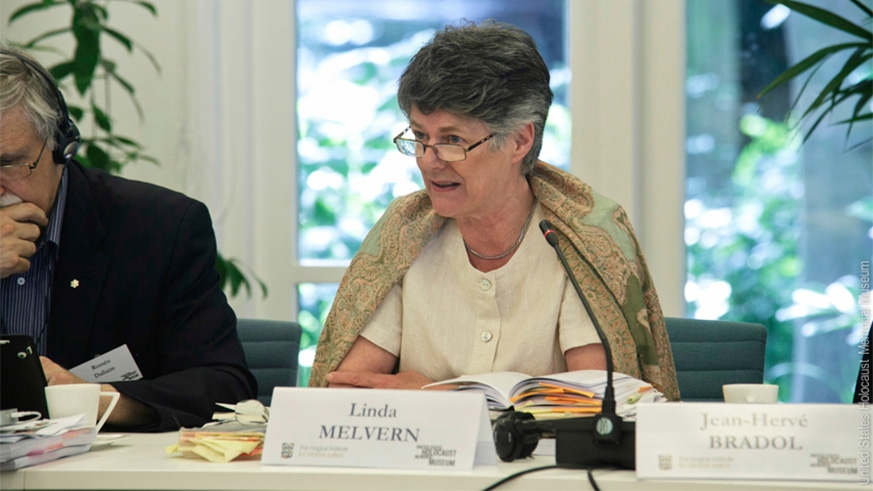
A guest post from Linda Melvern from her article The Story of Genocide Denial in Rwanda from the Journal of International Peacekeeping
Since the very beginning of the Rwandan Genocide of the Tutsis in 1994, members of Hutu Power, the Akazu, and other interested allies of the former government of Rwanda have been conducting a campaign of genocide denial, one in which they blame the Tutsi dominated Rwandan Patriotic Army for carrying out murder of civilians during the civil war in 1994.
In this article Linda Melvern examines the role that Hutu Power played in creating the myth of a counter-genocide and the unwitting legitimacy that was given to it by several UN agencies and their associated employees and consultants. Melvern notes that despite overwhelming evidence that demonstrates that there was no ‘counter genocide’, the lies and misinformation planted in the early post-genocide days persist, with some authors making new unsubstantiated claims about a slaughter of those Hutu who did not flee the country in July 1994.
From the moment when the leadership of Hutu Power seized control of the government of Rwanda on the evening of 6 April 1994, it had determined to distort the reality of events surrounding the genocide to the outside world. The United Nations was central to these plans. In a sad irony the General Assembly had elected Rwanda to one of the 10 non-permanent seats in the Security Council, and so when the genocide of the Tutsi was getting underway in April 1994, the genocidaires had an ideal forum to promote the denial of their crime and spread fake news and disinformation in the meetings, hallways and lounges of the United Nations’ New York headquarters.
The foundation stone upon which the campaign of genocide denial had depended was that, far from being organised, the widespread killing throughout the country had resulted from a “spontaneous” uprising. In the wake of the resumed civil war with the Rwanda Patriot Front (RPF), the population attacked neighbours in fear and in anger. According to this narrative, there was no planning; the massacres were a failure of the human condition and followed centuries-long hatreds and in this “inter-ethnic” killing, both sides were to blame.
The notion of moral equivalence in the circumstances of the 1994 genocide of the Tutsi persists to this day. The idea of two genocides, the first nearly wiping out the Tutsi minority, and the second secretly committed by the Tutsi-dominated RPFagainst Hutu, would have been a sensational news story, if true. In July after the RPFachieved military victory there was a proliferation of rumours about human rights abuses committed by these troops. A US journalist, Mark Fritz, spent nearly a month looking for evidence but found nothing. A British journalist reporting from Rwanda for the BBC, Mark Doyle, wrote a dispatch to London explaining no convincing evidence existed of the rpf massacring civilians. Doyle warned the bbc news desk not to broadcast claims about RPF abuses until some convincing evidence emerged. ‘I used to take regular calls from bbc editors in London asking me to make sure I put the other side’, Doyle wrote later. Doyle told them this was not a balanced picture, and there was no moral equivalence.
The full article is available online here.
